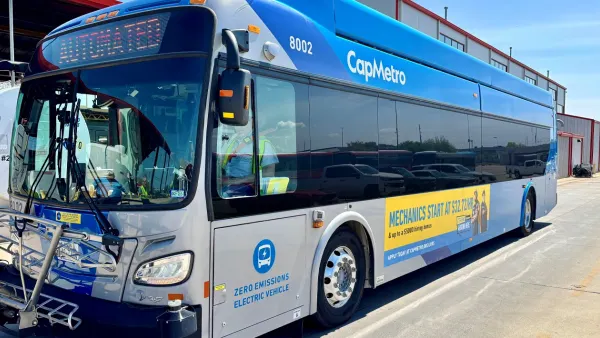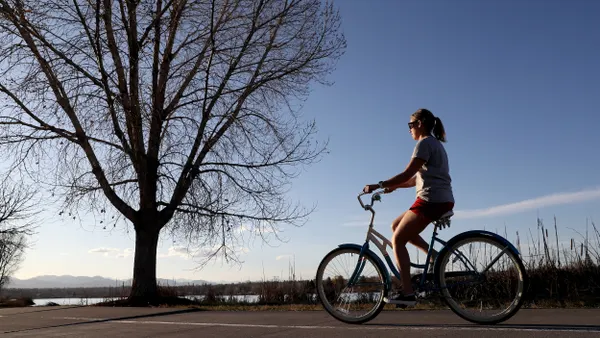Dive Brief:
- Bike-share company Zagster, which is behind the Pace dockless bikes, launched a parking platform called Pace Parking for bikes and dockless electric bikes and scooters.
- The infrastructure is available in three cities — Chicago, Austin, TX and Bloomington, IN — with more expected to follow before the end of the year. Any vehicle that has a lock-to device to secure it to a fixed object can use the parking for free.
- "What we learned is that secure bike parking and now secure mobility parking as cities move towards that, adding e-bike and e-scooters to the mix, is an important program to both the cities and the users," Zagster CEO Tim Ericson told Smart Cities Dive in an interview.
Dive Insight:
The majority of dockless bike- and scooter-sharing companies have had something of a checkered few months in their relationships with cities, as municipalities have quickly issued cease-and-desist letters once the new mobility options have descended on their streets. These parking structures are compatible with the dockless vehicles that can lock to something, including the Uber-owned Jump bikes and Skip scooters.
Ericson said dockless companies should work far more in concert with cities and be good partners, rather than bringing in their products with little or no warning. "You need to work closely with the city to be able to do that in a streamlined way,” he said. “I think these companies are somewhat short-sighted, and from a business standpoint, the reality is that cities are going to continue to cap the number of bikes and scooters until the parking problem is figured out."
Given the sidewalk clutter that dockless bikes and scooters can create, Ericson believes parking infrastructure is a solution for cities that can help them protect their sidewalks and other public rights-of-way and keep them safe. The company has partnered with real estate companies to install their parking infrastructure, and Ericson said it makes sense to put parking where people are.
"What we've seen as part of our own entry into the dockless bike-share space is when you put dedicated locations for bikes and scooters and others in places where people live and places where people work and where people want to go, they're more likely to use those types of services," he said.
Cities are wrestling with how to cope with the influx of dockless bikes and scooters, with the likes of Detroit currently writing regulations designed to govern their use and impact on the streets. Ericson said giving the dockless vehicles somewhere to park should solve many of the safety concerns. "We think the only way to create a true transportation and mobility network in a city at scale is to solve the parking problem, and we're the only company doing that,” he said.











